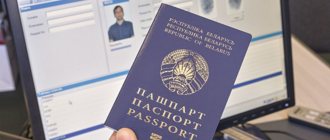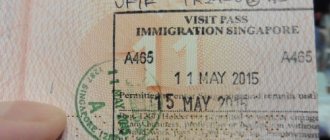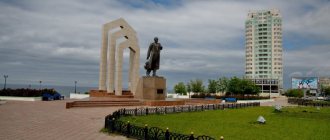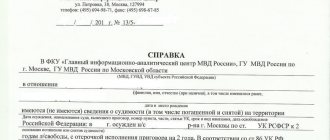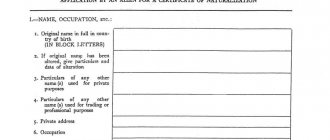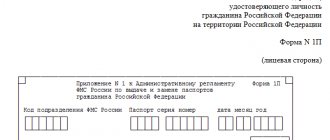How I ended up in Singapore
I am 33 years old. I was born in Ussuriysk, and after graduating from the Suvorov Military School, I moved to Kaliningrad, where I studied at the European Business School at the Faculty of Economics (now Kant Baltic Federal University). Kaliningrad is different from the rest of Russia: almost every Saturday and Sunday people go abroad “for coffee” or shopping.
My program also included six-month study in Ireland and Germany, where I greatly improved my English and learned German from scratch. I was 18 years old. I did not stay in Germany, although I really wanted to. Without start-up capital and a local diploma, it would be difficult to open a business or get a job. In Russia in the 2010s there was movement, a large and dynamic market - the economy, although unstable, provided space for creating your own services and startups.
I decided to move to Singapore amid the protests of December 2011. Then there was anticipation of change. In the spring of 2012 in Moscow, I had job offers from Xerox and SAP with a high salary, but political changes did not happen - and immediately after the elections, on March 5, I sent my resume to my former colleagues saying that I was moving.
Half an hour later, one of them wrote that he had an HR friend in Singapore. That’s how I found a vacancy for a Russian-speaking specialist selling supercomputers.
I quickly passed the interview and within a couple of days received an offer with a salary twice as high as I expected. This is not the highest salary on the market, but I was a 26-year-old guy with almost no experience working abroad. I think that my boss was bribed by the words that, regardless of the outcome of the interview, I would still go to Singapore. Isn't this a winning mindset?
VTB competition - come up with a name for your voice assistant and win an Iphone 12
About the move itself
It wasn't scary. But there was uncertainty - I did not understand what Singapore was. Back then I thought it was part of Malaysia. I moved in 2012: at that time there were much more quotas for foreign employees than now.
The fact is that out of five million Singaporeans, three are natives and two are expats. There are also about 300 thousand Filipino domestic workers and half a million workers from Pakistan and Bangladesh. All this creates competition in the labor market, burdens public transport, and increases the cost of housing.
Now the government is tightening the screws and wants to show that “Singapore is for Singaporeans”, so there are fewer and fewer quotas for foreigners. Many left due to coronavirus. The government is creating conditions to ensure that the most qualified personnel remain. If you don’t wait, your work permit is simply not renewed - this happens to people who have worked here for a year or 10 years.
Before moving, I gave away most of my things. I remember even giving my down jacket to a security guard at the airport who was cold. Upon arrival, I temporarily rented a room for a month for 500 SGD, and then moved into an apartment that I shared with a colleague for 2,500 thousand SGD (one Singapore dollar is equal to approximately 54 rubles, exchange rate at the time of publication. - Note). Our house had a fitness room and a swimming pool.
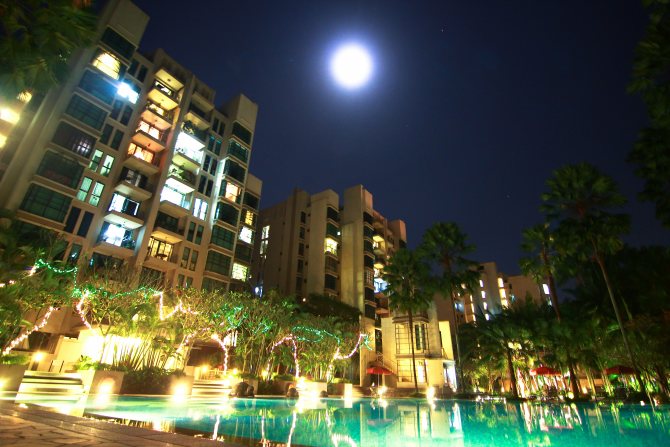
This is what condo housing looks like in Singapore. Vitaly's first house
Three main advantages of Singapore for entrepreneurs:
- A small tax for companies For example, for six months I was charged 0.5% income tax - something like $100. And then they were returned! It’s just that in 2021, due to a tax surplus, the government returned the surplus to citizens.
- Low risks of doing business Over the five years of operation, our company has completed about 100 projects.
Most of the time we worked without advance payment - a letter or WhatsApp message was enough. During all this time, we were not paid only one micro-invoice for 2000 SGD, because the client went bankrupt. For comparison: our colleagues supplied server equipment to India for 100 thousand SGD, and when 30 days later they came to check the office, the company disappeared. In another situation, when they arrived to pick up servers from a client, they were met by armed men and were not allowed to go inside. Therefore, we rarely work outside of Singapore and Malaysia without prepayment. The rest of Asia needs trusted partners, otherwise there is a risk that your equipment will be stolen. - Professional labor market Singaporeans are hardworking and educated professionals. They speak two or three languages fluently and are well versed in the intricacies of local business. If you have just started work, then you definitely need to hire a couple of locals - this will help build relationships with the community.
Prospects for acquiring citizenship
Immigration to Singapore from Russia has not become widespread due to the different culture, mentality of local residents, and distance from their home country. Those who decide to take such a step are attracted by the high level of economic development, stability, and low crime rates. Thus, the authorities of the republic have ensured that there are few people willing to commit illegal acts, since monetary sanctions even for administrative offenses are calculated in huge amounts.
The standard of living in Singapore is as high as in developed countries in Europe and America. The peculiarity of the country is that there is no dilapidated housing here. All buildings were erected no more than 30–40 years ago. Holders of a passport of a citizen of the republic have the opportunity to visit about one hundred and seventy countries of the world without a visa or under preferential entry rules. In addition, Singapore citizens have voting rights. They have benefits when purchasing public housing.
Singapore Citizen Passport
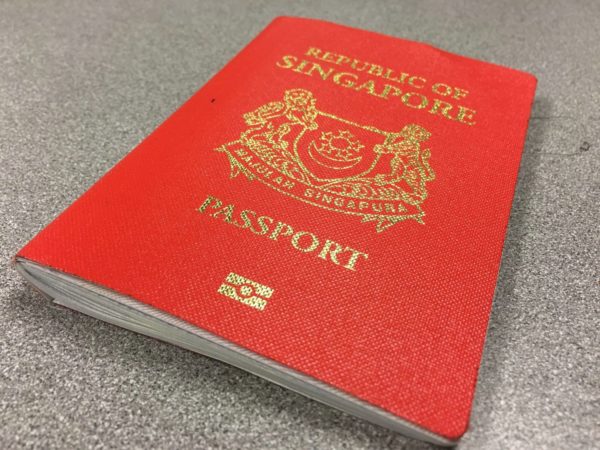
Registration of an indigenous person involves several stages. The initial step is to obtain a visa to enter the country, then a residence permit and permanent residence permit. Sometimes you can bypass the stage of obtaining a temporary permit and immediately submit papers for a permanent version of the document. A foreigner has the right to obtain citizenship in 2021 after two years of legal residence in Singapore. Simplified migration legislation and the favorable attitude of the government allow persons with a different nationality to relatively quickly obtain a passport of a citizen of the republic.
“I didn’t know the language and for the first four months I could only buy food”
In Singapore, they speak a mixture of English and slang words from Asian dialects with a special pronunciation - Singlish. My English didn't help at all. For the first 3-4 months, I could only order food and buy groceries - it was so difficult for me to communicate in the local language.
I remember my first call with a client: he listened to me for 30 seconds and then said, “No offense, but I have no idea what you’re saying. Call me back in six months when you learn to speak Singlish.” Six months later, I learned the language, called back and we worked together for a long time.
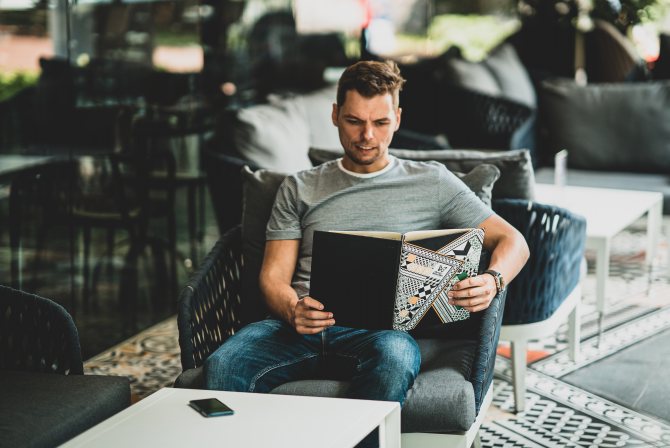
Why is it difficult for Russians to open a business in Singapore? And how did I do it
After eight months of work, I decided to open my own business. It took me about a year to understand the company’s niche and prepare the ground.
Foreigners have two ways to open a business in Singapore:
- Entrepreneur pass Assumes at least 50 thousand SGD in the account, guarantee confirmation from one of the four authorities in Singapore, for example, IMDA - the main department for all communications and innovation, a detailed business plan. The main problem is drawing up a letter of guarantee. If you are not a serial entrepreneur with good exits from past startups, then the chances are slim.
- Temporary residence permit is also difficult due to the reduction of quotas. Europeans received only 0.8% of permanent residence permits last year - that's about 800 people out of 10 thousand foreigners in all of Singapore. Most likely, these quotas will be given to Americans, British, Europeans, but not Russians.
I was thinking about how to get around these options. There's something like a legal loophole in the law: you start a company and hire yourself. You can do this, it’s legal, but it’s not encouraged.
In June 2014, I founded the company. Working for your own company on another company’s visa is a serious crime, punishable by a heavy fine - a million rubles (or 19 thousand SGD) or three months in prison. So in August, I hired my Singaporean friend as director. Paid her for a few months of work and she applied for my new work visa. Three months later I received a two-year work permit and hired myself.
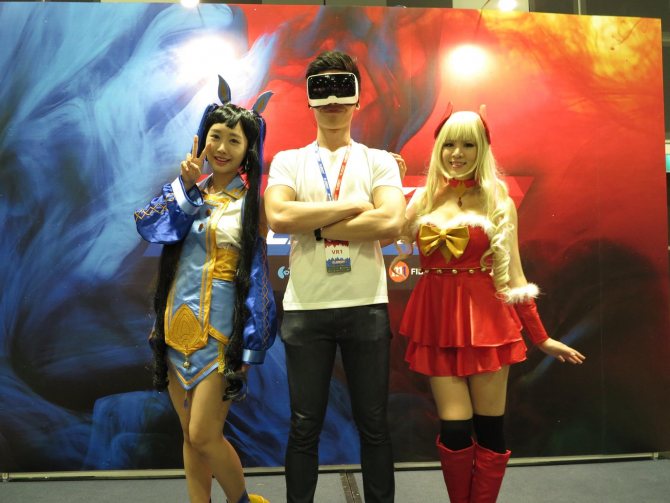
The first employee of the company with cosplayers at Garena Carnival 2015. Singapore, May 2015
Ways to obtain citizenship
There are several different ways in which you can obtain Singapore citizenship. These include:
- obtaining a residence permit of the Immediate PR type (in another way it is also called a temporary residence permit);
- obtaining a residence permit type LRP, created for specialists in certain industries;
- working leave, which involves obtaining a special visa to find an employer in Singapore.
Each of these options has its own characteristics and specifics. The main and very first step to obtaining citizenship is obtaining a Singapore residence permit. It is this document that gives the right to stay in the country without leaving for a long time. And only after this the foreigner will be able to apply for citizenship.
Urgent residence permit
This option is considered the fastest, but it is less popular among immigrants. After preparing and collecting all the documents, the issue of issuing a permanent residence permit is resolved within 1-2 days. But the candidate is subject to quite stringent requirements:
- It must invest at least $2.5 million into the country's local economy. These funds can be invested in your own business or in shares of operating companies in Singapore.
- In addition to such a large amount of investment, the candidate is required to have a detailed investment plan for the next years, a good reputation, as well as mandatory business experience.
In some cases, in addition to large investors, representatives of culture, such as artists, actors, musicians and other artists with a worldwide reputation, can also obtain a residence permit. They must document their achievements and certifications.
All documents are sent initially by email to a government agency called the National Arts Council. It is this organization that is responsible for the development of art in the country.
After reviewing the submitted documents, the applicant is sent a response.
Residence permit for a year
This option is designed for professionals in certain industries. In this case, the residence permit is issued as an advance to the resident. He must come to the country and find a job within one year, based on his professional skills and preferences. But if during this time a person is unable to find a job, then his residence permit will be cancelled. This method is most common among foreigners, since it does not require large financial investments from them. A person is only required to have a certain education that allows him to find a good, well-paid job.
To apply for a residence permit for a year, you will need to collect a certain package of documents. These include:
- copies of the national and foreign passports of the applicant, as well as all his family members who plan to immigrate to the country with him;
- birth certificate of each family member;
- documents on the applicant's education;
- reviews from employers and letters of recommendation;
- salary certificate for the last six months;
- tax returns for the last 3 years;
- certificate confirming the existence of a registered marriage.
It is important to know that the Singapore government allows not only the applicant himself to obtain a residence permit, but also his official spouse, as well as children. The age limit for children is set at 21 years. Before reaching this age, a child can obtain permanent residence together with his parent.
Separately for children, you will need to prepare the following documents:
- copies of his national and foreign passport (if the child is under 14 years old, a national passport will not be required);
- birth certificate confirming the relationship with the applicant;
- for persons studying or graduating from school, college or other institution, it is mandatory to have a certificate or certificate from an educational institution;
- If you have work experience, it is advisable to provide a letter of recommendation.
If the applicant is only one parent, and the other remains to live in another country, then an additional set of documents will be required:
- in case of temporary absence of a parent, a power of attorney certified by a notary is required;
- in case of official divorce of parents, a certificate of this will be required;
- in the event of the death of one of the spouses, a certificate of this will be required;
- if there are other circumstances of the spouse’s absence, certificates, copies of protocols and other documents confirming these facts will be required.
But it is important to know that the country has a law on compulsory military service for men from 21 to 45 years of age. Therefore, not many people seek to grant citizenship to their sons and husbands. As an alternative, you can apply for a Dependant Pass visa for your children. In this case, they will be able to live in the country for a long time with their parents.
How the company got involved in VR
I had several attempts to organize my own business. I wanted to take a successful business from Russia and adapt it here, becoming a regional representative. I started with algorithmic trading and then moved on to 3D printing.
Virtual reality happened by accident: a friend asked if it was possible to watch the installations through a helmet. I researched the market and realized that there are few VR companies and offerings in Singapore. Large players did not enter here, which opened up potential for small companies like ours. We were positioned as a Russian company with headquarters in Singapore. In Asia, Russians are treated well: we are considered cool technical specialists.
It is believed that Russians work according to European standards, that is, with high quality, but at the same time they are twice as productive as Europeans.
Currently, the company has five full-time employees, and about ten more are outsourced. All technical parts are done in Russia. If we talk about taxes, then there are many bonuses for business. For example, a new company does not pay 75% of every 100 thousand SGD of profit for the first three years. And so the income tax is 17%. That is, if you earned 50 thousand in profit, 75% of it is not taxed, and the rest is at a rate of 17%.
For 5 years we have not had a single inspection. Yes, you have to submit financial statements, but I’ve never heard of someone coming to the office to conduct a search or check.
The market is very turbulent. There were no deals at all for three months, and last week I immediately closed the quarterly plan. In a good scenario, we can reach SGD million in revenue before the end of the year.
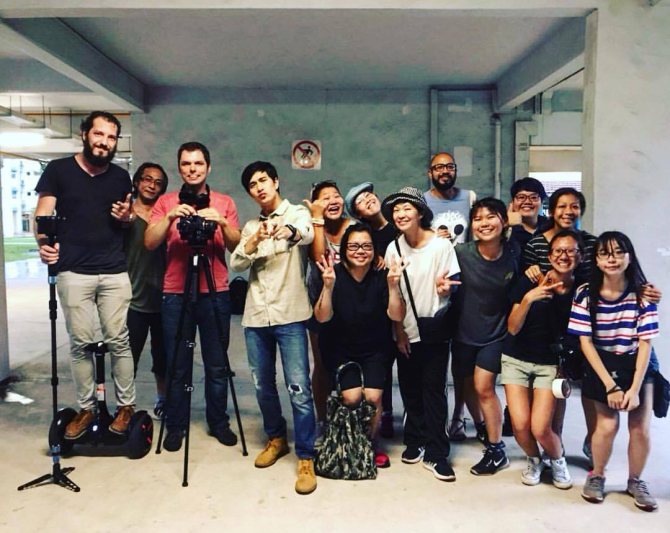
Our film crew. November, 2017
Customs regulations
Singaporean legislation is quite strict, so before entering this city-state, be sure to familiarize yourself with the rules for entry and stay in it.
Special attention should be paid to obtaining a migration card, which must be completed by all travelers who do not have Singaporean citizenship.
How to apply for a migration card
You must fill out a migration card every time you enter Singapore. Forms to fill out are usually given out on the plane, or you can pick them up at a special counter in front of the checkpoint - there you will also find examples of filling out and pens. Information should be entered in Latin letters - the same as in the passport. For children included in the parental passport, a migration card must be filled out on a separate form. When going through passport control, the border guard keeps one part of the card for himself and gives the other part, with a stamp indicating the date of entry, to you.
Entry rules at customs
You are allowed to import duty free into Singapore:
- 1 liter of any alcohol, except drinks marked Singapore duty not paid;
- confectionery items not exceeding S$300 (US$220), limited to S$150 (US$110) for travel not exceeding two days;
- The volume of medicines must be calculated for one person.
You are allowed to import a maximum of 200 cigarettes, but you must pay a fee of 7.04 Singapore dollars (5.17 US dollars) per pack at the border.
Therefore, when paying the fee, you need to keep the receipt to present it on occasion, or smoke cigarettes purchased in Singapore with the existing SDPC marking, which means Singapore duty-paid cigarettes.
As for currency, you can import and export both national and foreign currency into Singapore, but not more than the equivalent of 30 thousand Singapore dollars (22 thousand US dollars). If this amount is exceeded, the money must be declared.
To import pets you will need to obtain the following documents:
- International veterinary certificate (issued no earlier than 30 days before entry).
- Permit to import animals from the Singapore Veterinary Office (issued no earlier than two weeks before entry);
- Certificate of vaccination against rabies, except for citizens of countries such as Great Britain, Ireland, New Zealand and Australia (in the absence of a certificate, the animal will be vaccinated at the Singapore Veterinary Station, after which it will be placed in a 30-day quarantine).
Interesting How to become a citizen of Canada for a Russian
Singapore law is extremely strict regarding the import of the following prohibited materials:
- counterfeit money (including toy money);
- firecrackers and any explosives;
- lighters in the shape of weapons;
- chewing gum;
- pornographic products on any medium;
- counterfeits and any materials that violate copyrights and intellectual property rights;
- terrorist materials;
- drugs and other psychotropic substances;
- endangered species of plants and animals, as well as products made from them;
- meat and any meat products.
The importation of the above materials will be considered a criminal offense by the Singapore authorities.
“Word of mouth helps you find clients in Singapore”
Although my friends in Russia helped with the developments, the first six months were difficult: we sold one of the projects to a large Singapore bank. Then we entered an incubator, as a result of which the local TV giant Mediacorp bought 7% of our company and invested 50 thousand SGD and gave a media credit for 500 thousand SGD, from which we covered the cost of advertising in the press. This [connection with Mediacorp] significantly simplified communication with clients and increased confidence in us: in three years the number of clients increased from five to one hundred.
Word of mouth and networking work very well in Singapore. When we first arrived at Mediacorp, within a week we met the directors of all the channels and radio stations in Singapore. Often I would make a presentation over coffee for the channel director, and then he would call 2-3 friends.

Article about our project for AirAsia (virtual avatar), 2021
Why do I meet with funeral homes and wedding salons?
For the first two years, I tried to have at least five meetings with prospects per week, which works out to about 200 meetings with new clients per year. Sometimes these were wedding salons or funeral homes - not our audience at all. But I also go to meetings with them. I'll explain why.
According to official statistics, there are many millionaires in Singapore - every 10th! And they may well invest in your company, even if they have a completely different niche.
The second point is that they are constantly looking for a way to bring innovation. An example with a funeral home: one of the owners asked if we could recreate his deceased wife in VR - something like a Digital Memorial. Technology in 2021 left much to be desired, so we didn’t start working. But in 2021, a project thundered throughout the world, where they recreated the deceased girl and made a last meeting with her mother. So “you never know”.
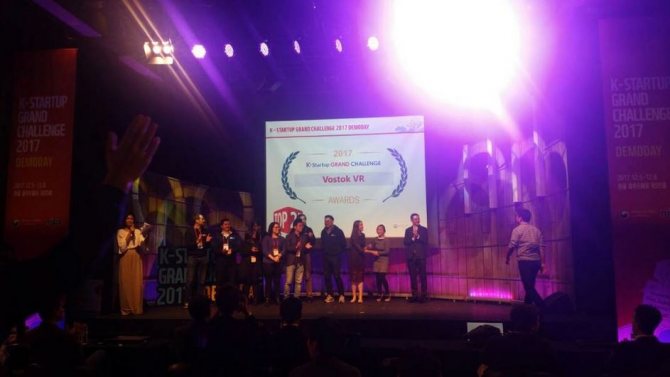
KStartup incubator. Seoul, 2017
“We found the know-how and transferred the labor-intensive work of specialists to VR”
The pandemic helped reformat the business from custom solutions to the development of a single platform. I saw a niche - remote work of teams using VR.
Before the pandemic, we were doing a project to digitize geological outcrops. Training geologists is expensive: field trips to outcroppings, accommodation and study of the terrain cost about $100 thousand. The trip is long, you live in nature and sometimes live alongside dangerous fauna such as scorpions and snakes. A lot of such “expeditions” are needed - millions of dollars a year.
Using photogrammetry, we took a scan of the rocks on the island of Borneo and transferred these mountains to VR with a coarse grain quality level - when you can see the smallest details, even grains of sand. We also filmed the mountain itself - no geologist had been able to study it before. The project was presented by Petronas Malaysia at the APGCE 2021 exhibition. Among analogues, only Saudi Aramco, a company with a trillion-dollar turnover, has similar developments. Then we decided to add a multiplayer function for a large number of participants, which allows even users from different countries to be “on the spot”.

Performance during the PHD Merge event. To my left is Spanish cyber artist Moon Ribas. Singapore, October 2017
We are currently working on a project for Subaru. Due to quarantine, most car dealerships were closed - and we offered to test drive a car in VR. Thanks to technology, a Subaru Forester appears in your room: you can see the color, wheels, capacity; test different functions of the car, such as slamming it into a wall to see where the engine goes in a frontal collision. The service does not replace a full test drive, but helps you decide on the model. If the client is interested, he then signs up for a real test drive. We have now signed a contract with Subaru for the digitization of 15 models. About 50 more models are planned by the end of the year.
We also signed a contract with Samsung Asia to present the Note 20 in AR. The reason is the same - you can’t hold big events now, but there is a budget. Therefore, we decided to make an application that would give a brief overview of the main functions of the product. I can’t disclose the details, but the application will be available in August.
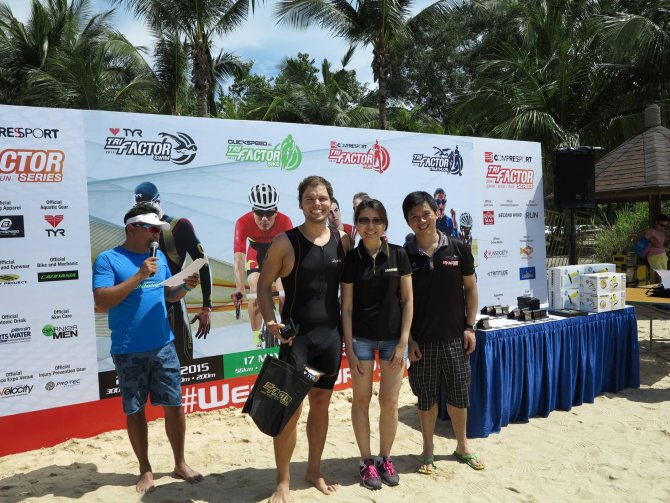
Trifactor Swim 2015 competition
How does the local mentality affect business?
Singaporeans are more straightforward: they calmly say what they like or don’t like, why they are ready to make a deal. They have their own rituals in business. For example, when you have already agreed on the terms of the contract, shook hands and come to sign the contract, you will always be asked for a discount or some service for free. We need to keep this in mind. The Chinese have a theme called “kiasu” – fear of losing benefits. In Singapore it is less noticeable, but it is also there.
And when everything is decided and the contract is signed, you find out that there will be no advance payment, and you will have to wait another two months for payment.
Another illustration of the local mentality. I recently went to a client's factory where I participated in a meeting. Everyone was wearing masks, it was a pandemic. When the boss entered the room, the employees stood up. Then he took off his mask. His deputy took off the mask halfway - her nose and half her lip were sticking out. The rest remained wearing masks. That is, the hierarchy can be traced even in such a small thing as the level of the mask on the face!
Another story about hierarchy. We are conducting a project with a client and have planned a meeting that would signal the start of cooperation (project kickoff meeting). But we couldn’t just meet with the director right away, first with the project manager. She asked to postpone the meeting for three weeks. We didn't want to put things off for so long. So she said, “Okay, I’ll figure something out,” and scheduled another meeting before meeting with the director! If translated into Russian, then this is a “pre-kickoff meeting”. That is, we still need to talk to her first before talking to her boss.
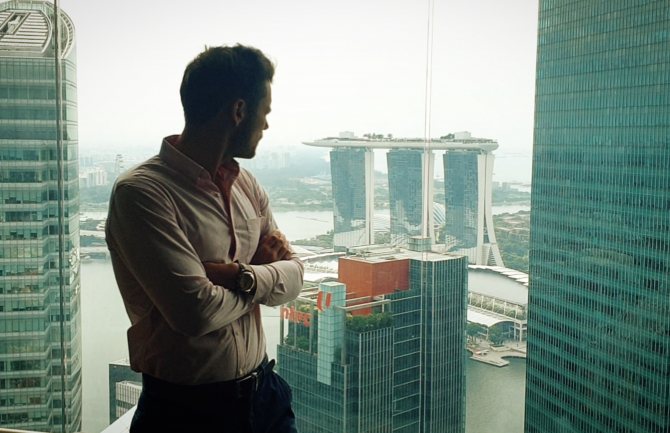
Where to start looking for a job to move
Experienced emigrants do not advise looking for classes directly on the spot; this is ineffective relative to the chosen state. It is better to organize the selection of a vacancy before the fateful flight. The best algorithm for this is:
- Determine for yourself what kind of Ukrainian or global companies are most suitable for the available professional skills. Select specific objects.
- Compile a complete resume with a mandatory indication of education and work experience (higher education with work experience of 3 to 5 years is preferred).
- Post your resume on the websites of selected companies.
- Propagate your resume on the websites of other potential employers, both domestic and international.
- Students should ask their deans whether their university does not support the transfer program to the National University of Singapore (officially exists for Ukrainian universities). Then you will be able to move through training.
Interesting Applying for a work visa to Spain
This way you can protect yourself from unnecessary expenses and disappointments.
How much does it cost to live in Singapore?
According to estimates from the local consulate, about five thousand Russians now live here. But this number is decreasing: medical tourism, visa processing and other areas of service are disappearing.
Housing here is expensive - per month from 1500 SGD for a room in an apartment and up to 20-30 thousand SGD for a cute colonial-style house. But every apartment building has a swimming pool, security, and a gym.
Renting a home is one of the most expensive parts of the budget of anyone living in Singapore. This price level is partly due to the number of expats to whom the company rents housing and does not look at the cost. The Chinese are also buying real estate here.
To rent a room, live modestly and travel to Bali every few months, you need to earn 5,000 SGD per month for one person - a standard salary by local standards. And for a family you need 10-12 thousand SGD - this is the average income.

Possibility of dual citizenship
Our compatriots who decide to move to this Asian exotic country should keep in mind that it is impossible to register as a Singaporean indigenous person while maintaining a Russian one. Despite the fact that Singapore is a completely democratic state, there is a strict ban on bipatrism. According to the law, in order to obtain citizenship of the republic, the applicant must formally renounce the previous one.
Read also: Work in Singapore for Russians in 2021 Education in Singapore
